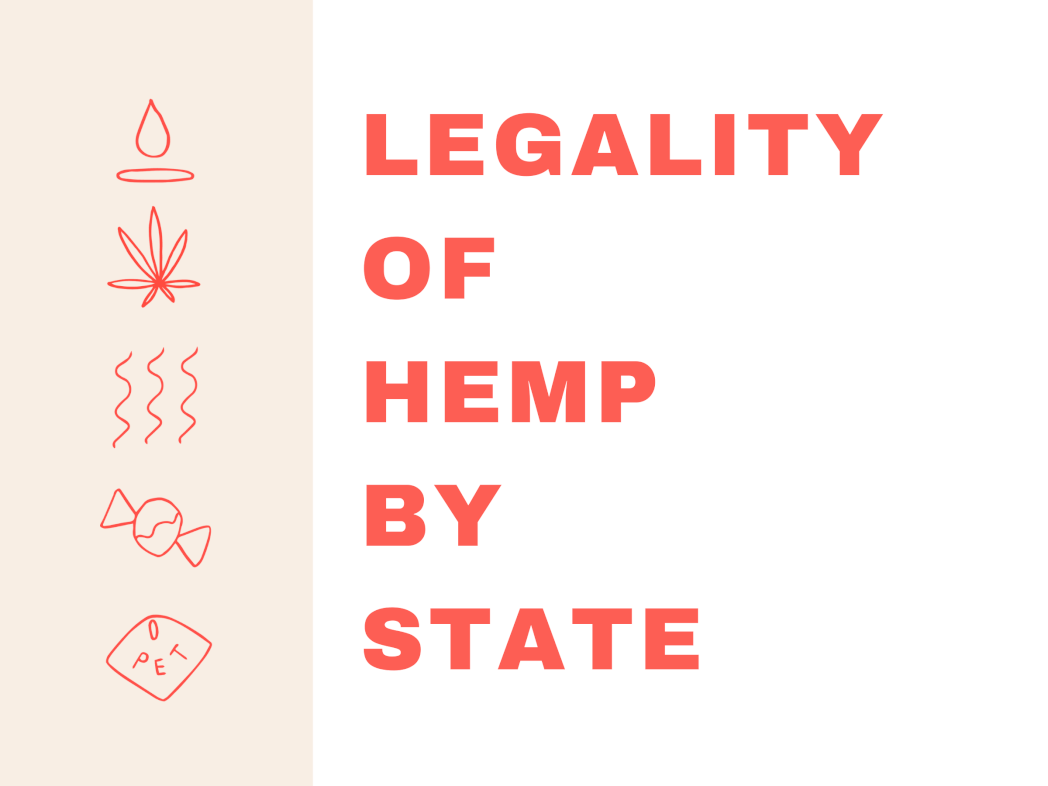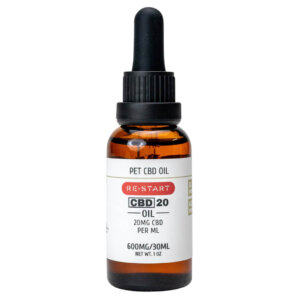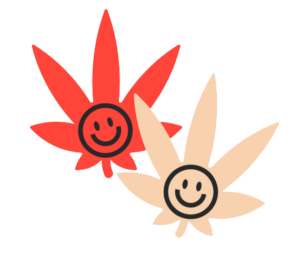We Ship Nationwide* $8.50 Flat Rate USPS Priority Shipping!

Delta 8 gummies might be available in your state, but if it’s not, our Delta 9 gummies are your answer.
RESTART CBD products contain a concentration equal to or less than 0.3% Delta 9 THC on a dry weight basis. Products containing hemp-derived THC at this concentration are federally legal under the 2018 Farm Bill. Check with your local laws before purchasing. You should not use this product if you have concerns regarding passing a drug test. By purchasing any RESTART product, you assume full responsibility for all terms, conditions, and laws pertaining to your purchase.
What is the legality of hemp in your state?
As of 8/28/2020
The 2018 Farm Bill defines “hemp” as, in part, “acids, […] with a delta-9 tetrahydrocannabinol [(“THC”)] concentration of not more than 0.3 percent on a dry weight basis.” Some states interpreted this statement literally, to mean that “only” the delta-9 THC content in hemp would be used in determining compliance with the state and federal statutes. However, other states like Oregon, interpret the federal statute to mean that because THCA is an acidic cannabinoid that “contains” THC, it must be added to the THC concentration to ensure that their total concentration does not exceed 0.3 percent.
“Total THC” refers to the legal argument that in order for a particular cannabis sample to meet the definition of “hemp” set forth in the 2018 Farm Bill both the Δ9 THC and the THCA concentrations must be taken into consideration. Specifically, in order to determine whether a specific hemp sample is legally compliant the Δ9 THC levels in a hemp sample must be added to 87.7% of the THCA levels in a hemp sample. (Note: The short reason for this is that Δ9 THC is only 87.7% of the molecular weight of THCA. I’ll explain it in more detail, below.) If the sum of these two figures does not exceed 0.3% then the hemp sample is lawful. If it exceeds 0.3% it is unlawful.
For example, if a hemp sample has Δ9 THC concentrations of 0.10% and THCA concentrations of 0.20%, then the “total THC” is 0.10% + (0.20% x 87.70%) = 0.28%. Under the Total THC view, this sample is compliant. However, a sample with the same Δ9 THC concentrations of 0.10% and THCA concentrations of 0.30% is not compliant because it has “total THC” concentrations of 0.10% + (0.30% x 87.70%) = 0.36%. In this second example, neither the Δ9 THC nor the THCA levels exceed 0.3%; however, added together they exceed (slightly) the legal limit of 0.3%. Therefore, the sample is unlawful “hot” hemp.
THC and THCA are two compounds commonly found in the cannabis plant. As its name indicates, THCA is an acidic cannabinoid, whereas THC is a neutral cannabinoid, meaning it possesses active (psychoactive) proprieties. While these compounds are present in different forms, they are linked in that when exposed to heat or lights THCA converts into THC. This conversion process naturally occurs over time but can also be enhanced through a chemical reaction called decarboxylation. Specifically, decarboxylation removes a carboxyl group of THCA and releases carbon dioxide which turns the large 3-D shape of the THCA molecule into a THC molecule, which is smaller and can fit into a body CB1 (cannabinoid) receptors.
Although the 2018 Farm Bill legalized the production and sale of industrial hemp and the various derivative products therefrom, the federal statute left the procedure for testing THC levels up to the individual states. The Farm Bill says, “that States and Native American Tribes that wish to hold primary regulatory authority over the production of hemp within their borders must submit a plan that includes, among other things, “a procedure for testing, using postdecarboxylation or other similarly reliable methods, delta-9 tetrahydrocannabinol concentration levels of hemp produced in the State or territory of the Indian tribe[.]” States have primary regulatory authority over hemp manufacturing as long as they devise and put forth a plan approved by the federal Department of Agriculture.
The information contained herein was gathered by reviewing the legislation and statutes for each of the states listed. It should also be noted that in those states have not enacted industrial hemp legislation, and those that have pilot/research programs, law enforcement will rely upon any then current proposals and other similar legislative actions to determine how to treat hemp in those states.
The links below lis all states which have Industrial hemp laws that pertain to the governance and cultivation of Industrial Hemp within that state. We have provided a link to that states program for Industrial Hemp through that states respective Department of Agriculture. There you will find information regarding regulation, zoning, certified seed programs, and forms needed for registration with the state. So far we have identified 22 states which have passed laws regulating Industrial Hemp on their department of Agriculture pages.
“All parts and varieties of the plant Cannabis sativa, cultivated or possessed by a licensed grower, whether growing or not, that contain a delta-9 tetrahydrocannabinol concentration of not more than 0.3 percent on a dry weight basis.”
“All licensees are subject to the collection of a representative sample of any Cannabis plant, hemp crop or harvested hemp in possession of the licensee or licensee’s agent to determine the total concentration of Delta-9 THC as reported by a certified laboratory to ensure compliance with this article and any state or federal law, rule or order regulating Cannabis as an agricultural commodity.”
“a percentage of content of THC that is equal to or less than three tenths of one percent (.3%).”
“Industrial hemp means a plant of the genus Cannabis and any part of the plant, whether growing or not, containing a delta-9 tetrahydrocannabinol (THC) concentration of no more than three-tenths of one percent (0.3%) on a dry weight basis.”
“that has a total delta-9 tetrahydrocannabinol concentration that does not exceed 0.3 percent on a dry-weight basis.”
“Growing industrial hemp that when tested is shown to have a delta-9 tetrahydrocannabinol concentration greater than 0.3 per cent on a dry weight basis or a tetrahydrocannabinol concentration allowed by federal law, whichever is greater;”
“Industrial hemp” means the plant Cannabis sativa L. and any part of that plant, whether growing or not, with a delta-9 tetrahydorcannabinol concentration of not more than 0.3 percent on a dry weight basis that has been cultivated under a license issued under this Act or is otherwise lawfully present in this State, and includes any intermediate or finished product made or derived from industrial hemp.”
“A license to grow hemp is required, and hemp must test below 0.3% THC. In the absence of a license, any cannabis production regardless of THC level is considered marijuana. Marijuana production is still not legal in Indiana.”
“Industrial hemp” means all parts and varieties of the plant cannabis sativa L, whether growing or not, that contain a delta-9 tetrahydrocannabinol concentration of not more than 0.3% on a dry weight basis.”
“”Industrial hemp” has the same meaning as in 7 U.S.C. sec. 5940 as it currently exists or as it may be subsequently amended;”
“”Industrial hemp” means the plant Cannabis sativa L. and any part of that plant, including the seeds hereof and all derivatives, extracts, cannabinoids, isomers, acids, salts, and salts of isomers, whether growing or not, with a delta-9 tetrahydrocannabinol (THC) concentration of not more 0.3 percent on a dry weight basis.”
“Any variety of Cannabis sativa L. with a delta-9-tetrahydrocannabinol (THC) concentration that does not exceed 0.3% on a dry weight basis.”
“IN THIS SUBTITLE, “INDUSTRIAL HEMP” MEANS THE PLANT CANNABIS SATIVA L. AND ANY PART OF SUCH PLANT, WHETHER GROWING OR NOT, WITH A DELTA–9–TETRAHYDROCANNABINOL CONCENTRATION THAT DOES NOT EXCEED 0.3% ON A DRY WEIGHT BASIS.”
“the plant Cannabis sativa L. and any part of such plant, whether growing or not, with a delta-9 tetrahydrocannabinol (THC) concentration of not more than 0.3% on a dry weight basis.”
“This bill exempts industrial hemp, which is defined as Cannabis sativa L. containing no greater than 0.3% THC, from the definition of marijuana and the list of controlled substances.”
“Total Delta-9 THC % test results of mature flowers from mother plants.”
“plants grown would be required to be submitted for testing to determine whether they contain less than 0.3 percent THC.”
“By definition, industrial hemp is low (less than 0.3%) in tetrahydrocannabinol (THC)”
“viable plants and plant material in excess of three-tenths percent and less than five percent THC.”
“and all derivatives, extracts, cannabinoids, isomers, acids, salts, and salts of isomers, whether growing or not, with a delta-9 tetrahydrocannabinol concentration of not more than 0.3 percent on a dry weight basis.”
“use of varieties with less than 0.3 percent THC.”
“and that the variety is known to have delta-9 THC levels below 0.3%.”
“hemp must contain less than .3% THC.”
“ By law, industrial hemp must have less than 0.3% THC.”
“ Industrial hemp is cultivated for fiber, seed and other purposes, and federal and state law requires that the concentration of THC must be less than 0.3% in industrial hemp.”
“The law defines industrial hemp as cannabis that has no more than 0.3 percent THC.”
“THC means delta-9 tetrahydrocannabinol.”
“with a delta-9 tetrahydrocannabinol concentration of not more than 0.3 percent on a dry weight basis.”
“legal possession of hemp extract, or CBD oil, containing less than .3% tetrahydrocannabinol”
“Industrial hemp or hemp is the Cannabis sativa L. plant including all parts of the plant, whether growing or not, with a delta-9 tetrahydrocannabinol [THC] concentration of not more than 0.3 percent on a dry weight basis.”
“shall have a THC concentration not more than 0.3 percent on a dry weight basis.”
“CBD use is limited to edibles, oils, tinctures, and other products derived from marijuana. THC levels in all CBD products cannot exceed 0.3% on a dry weight basis.”
“recognizing industrial hemp having no more than 1 percent THC as an “agricultural crop.”
“If the THC concentration rises above the legal limit of 0.3 percent dry weight, the crop must be destroyed.”
“All license holders are subject to inspection and sampling to verify all parts of the hemp plant does not exceed the allowable three-tenths of one percent (0.300%) THC.”
“The Arkansas Industrial Hemp Program recognizes delta-9 THC as being THC + 0.877*THCA.”
“The final regulatory determination will be based on the total potential THC post-decarboxylation, which is equal to delta-9 THC + (THCA x 0.877) if the sample is analyzed via HPLC methodology.”
“the molar sum of THC and THCA [tetrahydrocannabinolic acid].”
“Hemp” means the plant of the genus cannabis and any part of such plant, whether growing or not, with a delta-9 tetrahydrocannabinol concentration that does not exceed three tenths percent (0.3%) on a dry weight basis of any part of the plant cannabis, or per volume or weight of marijuana product or the combined percent of delta-9 tetrahydrocannabinol and tetrahydrocannabinolic acid in any part of the plant cannabis regardless of the moisture content.”
“Voluntary or ordered destruction of Hemp that is above 0.3% THC is at the licensee’s expense.”
“whether growing or not, with the federally defined THC concentration no more than 0.3 percent”
“Hemp plants (Cannabis spp.) have THC levels of 0.3 percent or less. Plants with THC levels above 0.3 percent are still considered controlled substances in the state of Iowa and must be destroyed.”
“Certification of Industrial Hemp through regulatory testing to ensure THC levels < 0.3%.”
“The defining characteristic between hemp and marijuana is the chemical compound contained within each plant. Both can produce high amounts of Cannabidiol (CBD), a non-intoxicating chemical compound; however THC is produced at very different levels. While hemp can contain no more than 0.3% THC by dry weight, marijuana can contain up to 30% THC. Chemical analysis must be performed to ascertain THC levels.”
“plants grown would be required to be submitted for testing to determine whether they contain less than 0.3 percent THC.”
“The plant Cannabis sativa L with a THC content of not more than 0.3 percent on a dry weight basis.”
“The Idaho Attorney General considers hemp extracts with cannabidiol (CBD) to be a controlled substance unless it is derived from excluded parts of the hemp plant AND contains no tetrahydrocannabinol (THC).” Idaho State Bill defeated
The (Agricultural Improvement Act of 2018) Farm Bill amends the Agricultural Marketing Act of 1946 (AMA) to categorize hemp as an agricultural commodity regulated by the U.S. Department of Agriculture (USDA). Agricultural commodities are eligible for a range of federal programs including crop insurance, research grants, and certification of organic production practices. The Farm Bill also removes hemp from the Controlled Substances Act’s (CSA) list of controlled substances, and creates requirements for hemp “plans” administered by individual states or tribal governments. These plans, which will be submitted by states to USDA over a one-year transition period, must include: Information about the land on which hemp is produced, including a legal description of the land, for at least three years; A procedure for testing hemp THC concentration levels; A procedure for disposal of plants that exceed hemp THC levels, and products from those plants; A procedure to comply with enforcement provisions specified in the AMA; A procedure for conducting random, annual inspections of hemp producers; A procedure for submitting hemp production information to USDA; and Certification that the state or tribe has adequate resources and personnel to implement required hemp production procedures. Significantly, section 297A of the 2018 Farm Bill redefines the term “hemp” so that the dividing line between hemp and marijuana is the THC level. As the language states: “The term ‘hemp’ means the plant Cannabis sativa L. and any part of that plant, including the seeds thereof and all derivatives, extracts, cannabinoids, isomers, acids, salts, and salts of isomers, whether growing or not, with a delta-9 tetrahydrocannabinol concentration of not more than 0.3 percent on a dry weight basis.” Agriculture Improvement Act of 2018 Sec. 297A Later in the act under Section 12619 it revises the Controlled Substances Act to specifically exclude “hemp as defined in section 297A of the Agricultural Marketing Act” from being a Controlled Substance. Thus, a cannabis sativa plant that is less than 0.3% THC and all of its associated parts (including all cannabinoids and extracts) are excluded from the Controlled Substances Act as hemp. While this means that hemp-derived CBD would not violate the CSA, it does not meant that synthetic CBD or CBD derived from marijuana plants would fall outside the purview CSA. Further, it is not currently clear how production and marketing of such hemp-derived products will be regulated as USDA has yet to issue implementing regulations. The AMA requires USDA to issue regulation and guidance promptly. Finally, it also bears noting that FDA Commissioner Scott Gottlieb recently stated that “it’s unlawful under the [Federal Food, Drug, and Cosmetic Act] to introduce food containing added CBD or THC into interstate commerce, or to market CBD or THC products as, or in, dietary supplements, regardless of whether the substances are hemp-derived.” FDA has consistently taken the position that CBD cannot be sold in dietary supplements and foods under the current requirements of the Federal Food, Drug, and Cosmetic Act and has issued Warning Letters to companies for selling CBD in food and dietary supplements. Overall, this bill is a big win for those selling hemp-derived CBD who no longer have to worry about violating the CSA with their sales. Nevertheless, they should still be attentive to FDA and its enforcement against selling CBD in dietary supplements and foods.
SIGN UP FOR THE RESTART ROUNDUP:
FOR EXCLUSIVE DISCOUNTS, FREE SAMPLES, CANNABIS ADVOCACY, EDUCATION, & SO MUCH MORE.

2521 Rutland Dr #150A
Austin, TX 78758
(512) 843-7223
Mon-Sat 10am-7pm
Closed Sunday
Curbside Pickup & Delivery

Pick-up Location only @ Progressive Insurance
13402 Anderson Mill Rd
Cedar Park, TX 78613
(512) 817-4537
Mon-Fri 10am-5pm
Curbside Pickup
© RESTART LLC SINCE 2018-2024 • TERMS OF SERVICE • STORE POLICIES • PRIVACY POLICY • RETURNS & EXCHANGES